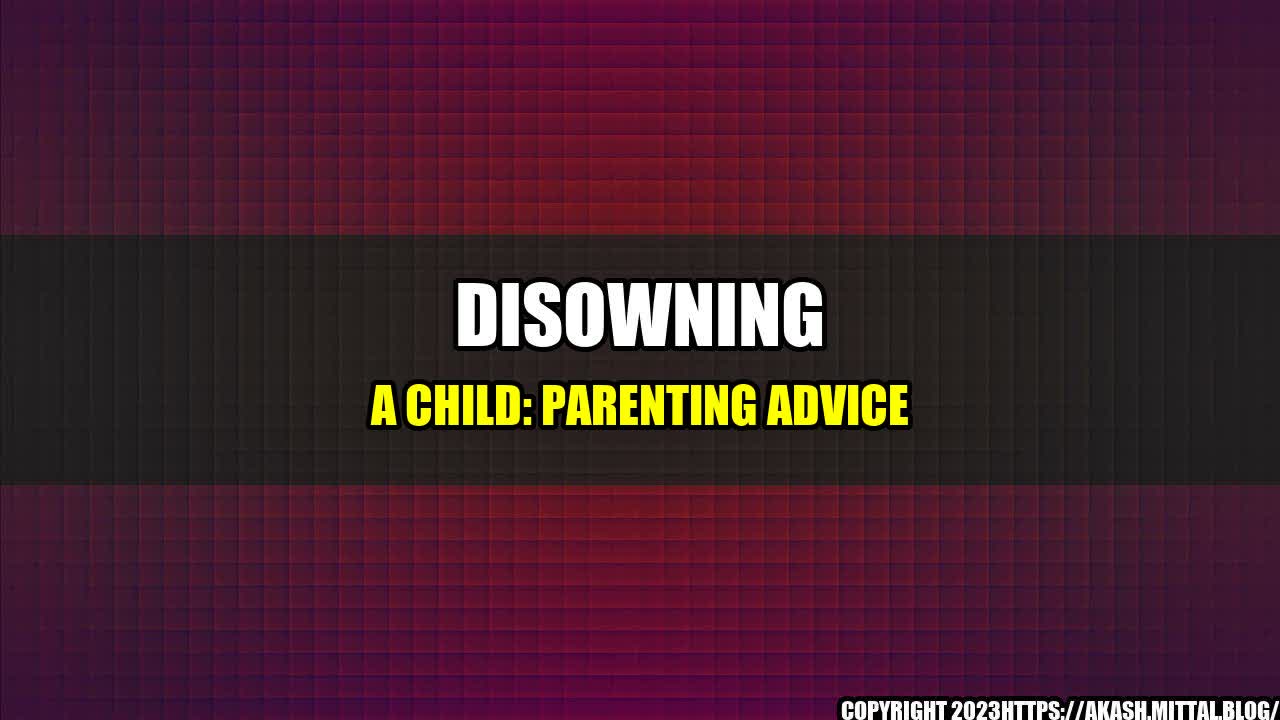
When it comes to parenting, there are few things more heartbreaking than the idea of disowning a child. Yet, for some parents, this can become a reality. Whether due to substance abuse, criminal activity, or simply irreconcilable differences, the decision to disown a child is never an easy one.
One mother, whom we'll call Sarah, found herself faced with this tough choice when her son, who had struggled with drug addiction for years, continued to steal from her and put her in dangerous situations. "I love my son with all my heart, but I couldn't keep putting myself through this," Sarah told us. "It was the hardest decision I ever had to make."
Unfortunately, Sarah's story is not unique. According to a recent study, approximately 1 in 5 parents have disowned a child at some point in their lives. If you find yourself in this difficult position, here are some tips to help you navigate this complex and emotional situation:
Disowning a child can be an incredibly isolating experience. Many parents may feel guilt or shame about their decision, or worry about how others will judge them. It's important to remember, however, that you are not alone.
Seeking the support of a mental health professional or support group can be a crucial step in coping with the emotional fallout of disowning a child. A trained therapist can help you process your feelings and provide a safe space to discuss your decision without fear of judgment or condemnation.
There are also a variety of online communities and support groups for parents who have disowned children. These groups can be a valuable resource for connecting with others who have been through similar experiences and for finding empathy and understanding.
Caring for a child who is struggling with addiction or other issues can be emotionally and physically draining. It's important to prioritize your own well-being when making the decision to disown a child.
This may mean seeking out self-care practices such as exercise, meditation, or therapy. It may also mean setting boundaries around your time and energy, and saying "no" to requests or demands that may be draining or harmful to your own mental health.
Remember, disowning a child does not mean that you are a bad parent. It is simply a testament to the fact that you have done all that you can, and that you need to prioritize your own health and well-being moving forward.
Disowning a child can have long-term impacts on both the child and the parent. Before making this decision, it's important to consider the potential consequences of severing ties.
For parents, this may mean grappling with feelings of loss or regret, or dealing with the potential fallout from family members or friends who may not understand or support your decision. It may also mean facing legal or financial ramifications, particularly if the child is still a minor or is financially dependent on you in some way.
For children, disownment can have a significant impact on their emotional well-being and can lead to feelings of abandonment and rejection. This may exacerbate existing mental health or addiction issues and make it harder for them to seek out help or make positive changes in their lives.
Ultimately, the decision to disown a child is a deeply personal one that requires careful consideration and self-reflection. If you are struggling with this decision, please know that there is help and support available.
References:
Hashtags: #disowningachild #parentingadvice #mentalhealthsupport #selfcare #longtermconsequences #addictionrecovery
Article Category: Parenting
Curated by Team Akash.Mittal.Blog
Share on Twitter Share on LinkedIn